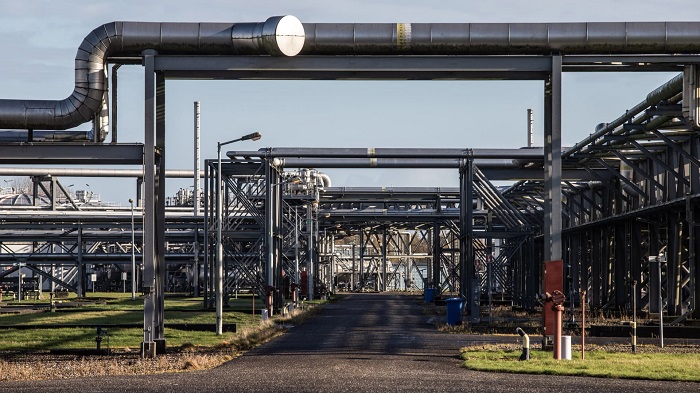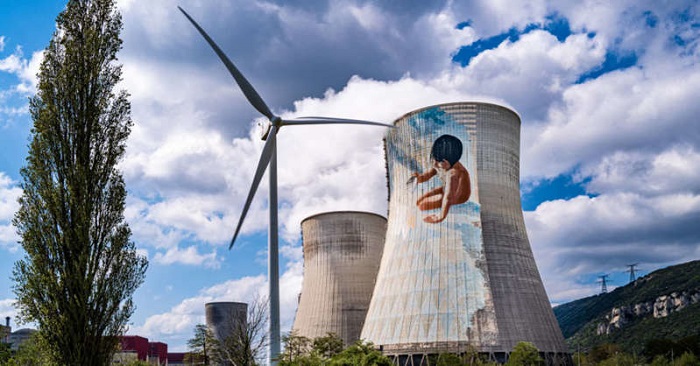The proposals of the European Union (EU) to refer to nuclear and gas projects as “green” have sparked a fierce outcry, with Germany labelling the idea as “greenwashing” and Austria threatening to sue the European Commission.
On New Year’s Eve, the EU commission sent its long-delayed “sustainable finance taxonomy” regulations to member states. The delayed draft prompted accusations that it was attempting to reduce its scrutiny.
By the end of this month, the EU wants to have a definitive text in hand once a formal response from an official expert group to the EU’s draft proposal is received by the deadline of Jan. 12.
The EU’s draft proposal states that it is vital to recognise that the fossil gas and nuclear energy sectors can contribute to the decarbonization of the Union’s economy.

According to a statement released by the EU on January 1, “gas and nuclear power can help accelerate the transition towards an energy future based primarily on renewable sources.”
Several months of debate and political discussions have led the commission to recommend that nuclear power and gas be classified as “green” investments.
Several EU countries, including Germany, have claimed that gas may be used as a “bridge” fuel to assist them in shifting away from investments in coal-based power plants, which are highly polluting. But they disagree with calling it a green investment.
Prominent environmental organisations and campaigners fear that the classification of natural gas as green would postpone urgently needed climate action and weaken the EU’s reputation as a global leader in addressing the climate crisis.
Pro-nuclear countries like France, the Czech Republic, and Hungary have pushed for the inclusion of emissions-free nuclear energy in the EU taxonomy list. Whereas the German, Austrian, and Luxembourg governments all objected to this plan, citing costs and radioactive waste as reasons.
Earlier this month, Robert Habeck, Germany’s new economy and climate action minister, after joining a so-called “traffic light” coalition of Social Democrats, Free Democrats, and Greens, allegedly stated that EU plans “water down the positive label for sustainable development.” It is disputed whether this greenwashing would ever find acceptability in the financial market, as per Habeck, co-leader of Germany’s Greens.
Moreover, Austrian Climate Minister Leonore Gewessler warned that her government would be prepared to sue if the commission’s suggestions were enacted. The EU taxonomy list must not include nuclear power or gas since they are destructive to the climate and the environment. They also threaten the future of our children. This was emphasised by Gewessler’s tweet on January 1st.
So, the question is: what is the EU’s taxonomy list?
As part of the EU’s effort to decarbonize its economy, a taxonomy list has been developed to help investors direct billions of euros toward projects that adhere to the EU’s environmental standards. It is a green classification system.
On Monday, Paul Bell, senior director of communications at Brussels-based advocacy organisation Transport and Environment, stated that “this Act goes against the EU’s Green Deal.”
Bell was of the opinion that “we can say goodbye to the EU’s green finance goal and a sustainable future for the EU now that trillions of euros have been authorised to fund gas and biofuels.” Stopping this is now up to the Parliament and the Council. “
“Provocation” and “greenwashing” are words used by Luxembourg’s Energy Minister, Claude Turmes, who is a Green Party member, to describe the EU’s draught proposal.
On Saturday, Turmes tweeted that whether the European Commission truly intends to “inspire citizens to undertake more climate protection in the new year using nuclear and gas?”
He also stated that he will meet with Luxembourg’s Environment Minister, Carole, to discuss the next steps in response to the EU’s draught proposal. Dieschbourg has previously criticised nuclear technology as being too slow-moving, too costly, and too hazardous.


